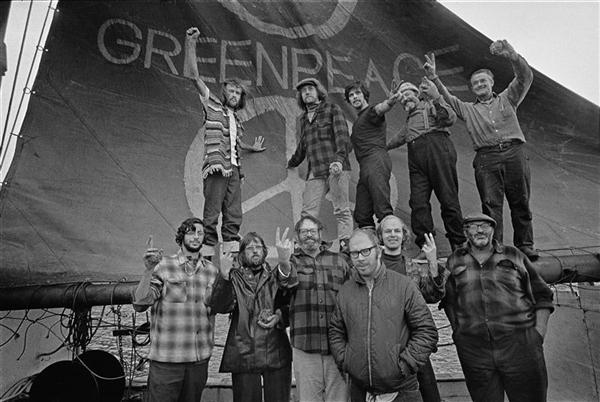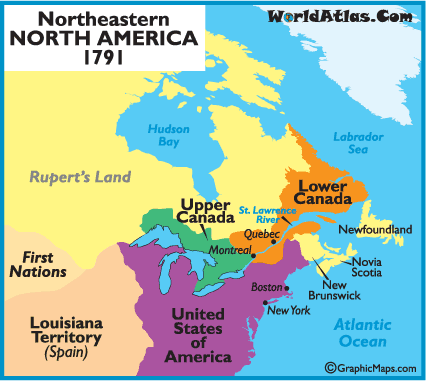<= 63. France 65. Haiti =>
1. Canada's Size
Canada is the second largest country in the world by total area and fourth largest by land area. Lakes cover a large proportion of the land area and Canada has more lakes than any other country in the world. Canada's lakes constitute 60% of all the lakes in the world.
1. Canada's Size
Canada is the second largest country in the world by total area and fourth largest by land area. Lakes cover a large proportion of the land area and Canada has more lakes than any other country in the world. Canada's lakes constitute 60% of all the lakes in the world.
 |
| Top 10 countries by total land area |
2. Eskimos
Native Americans came to the American continent from Bering Strait to Northern America about 20,000 years ago. They are the ancestors of indians and eskimos. There are still 350,000 native inhabitants in Canada and 50 languages or dialects that they speak. From the 100,000 eskimos of the world, 25% live in Canada, 50% in Greenland and the rest 25% in Alaska. In 1999 the Eskimos got their own state, Nunavut in northern Canada. Previously they had protested for their rights quite furiously.
Nunavut means "Our land" in a Eskimo language.
3. Two Canadas
In 1791 Canada was split into the English-speaking Upper Canada (Ontario) and French-speaking Lower Canada (Quebec).
1812-1814 USA attempted to annex Canada into it which led to a war.
1840 Upper Canada and Lower Canada were united as Canada, which was still the colony of United Kingdom. Other British territories joined Canada in 1867.
1931 Canada became independent statute of Westminster.
1949 Newfoundland joined Canada and thus Canada got its current shape. Canada became the largest country after Russia.
In 1791 Canada was split into the English-speaking Upper Canada (Ontario) and French-speaking Lower Canada (Quebec).
1812-1814 USA attempted to annex Canada into it which led to a war.
1840 Upper Canada and Lower Canada were united as Canada, which was still the colony of United Kingdom. Other British territories joined Canada in 1867.
1931 Canada became independent statute of Westminster.
1949 Newfoundland joined Canada and thus Canada got its current shape. Canada became the largest country after Russia.
4. Maple Leaf Flag
For hundred years Canada kept the British colonial flag as their national flag, but the French-speaking Canada opposed the flag, which referred to the British colonial time and so in 1965 Canada adopted their current maple leaf flag. The maple leaf has been a Canadian emblem since the 1700s and the maple leaf was first used in a national symbol in 1868 when it was used in the coat of arms of Ontario and Quebec.
 |
| Canadian flag 1957-1965 |
Greenpeace was founded in 1970 in Vancouver. USA had plans to conduct a nuclear weapon test in Alaska in the tectonically unstable island of Amchitka and it was feared to cause a tsunami. USA conducted the test and had next intentions to detonate a bomb five times more powerful than the first one. These events led to the formation of Greenpeace. In 1970 a concert was organized in Vancouver and the revenue from the concert created the financial basis for the first Greenpeace campaign.
 |
| Greenpeace early members |
Timeline
20,000 years ago people from Asia inhabited North America
1000 The Vikings visited the continent, which was inhabited by native indians and eskimos
1497 John Gabot sailed to Newfoundland and reserved the area for the English crown
1537 French Jacques Cartier found the Saint Lawrence river leading to the inlands of the continent
1608 French colonialism begins in Canada as the French establish their first settlement in Quebec
1755 Colonial war between the French and British starts, which the British won
1763 France abandons New-France, the future Canada, but the French migrants are ensured the right to their own language and culture
1791 Canada is divided into English-speaking Upper Canada (Ontaria) and French-speaking Lower Canda (Quebec)
1812-1814 USA pursues attaching Canada to its territories, which leads to war
1840 Upper Canada and Lower Canada merge into Canada
1846 The border of Canada and USA is confirmed
1867 Other British areas are attached to Canada
1885 Railway across the continent is completed, migration increases
1931 Canada becomes finally independent from United Kingdom
1949 Newfoundland joined Canada and the country gets its current shape
1976 Parti Quebecois raised into the parliament demanding for independence for Quebec
1988 Canada signs the NAFTA free trade agreement with USA, which Mexico joined later in 1994
1995 Referendum about the independence of Quebec, 50.6% voted for staying in Canada
Sources:
https://en.wikipedia.org/wiki/Lower_Canada
https://en.wikipedia.org/wiki/Upper_Canada
https://en.wikipedia.org/wiki/Canada
https://en.wikipedia.org/wiki/Lower_Canada
https://en.wikipedia.org/wiki/Upper_Canada
https://en.wikipedia.org/wiki/Canada




No comments:
Post a Comment